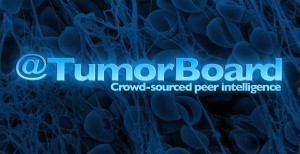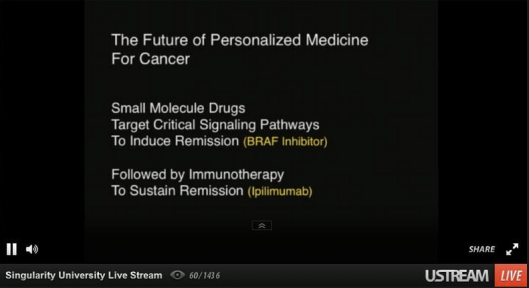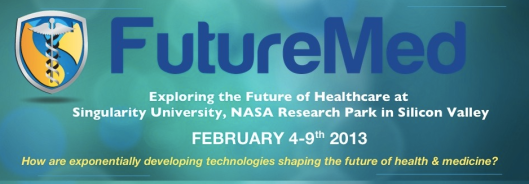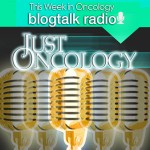Tags
cancer, digital media, integrated medicine, integrative oncology, Just Oncology, oncology, richard just md, social media
When I first approached Dr. Just on his potential interest in the emergence of social media in healthcare in general and medicine in particular, we engaged in conversations that generally tethered to a contribution to a ‘legacy’ theme.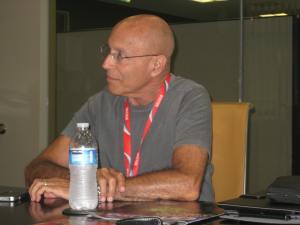
Reflecting on a now 40 year career in community based medical oncology he was thinking about winding down his participation in a full time practice while passing on the deep wisdom and insights developed over the decades.
Considering the explosion of digital media platforms and capabilities, and the low hurdle rate to participate via this medium this consideration was rather timely.
The first order of business was to brand that voice and craft a social media ‘presence’.
As I reflected on his last name ‘Just’, and saw a double entendre opportunity to conflate ‘just’ with ‘oncology’ – I thought how perfect! Lets brand you as ‘JustOncology.com’. Since in this context ‘just‘ could mean ‘Dr Just’, or solely focused on oncology, or even just in the sense of ‘equity’ or fairness in oncology care. In all cases, the branding expression and focus was clean and consistent with his interest to write, speak and counsel others on the journey.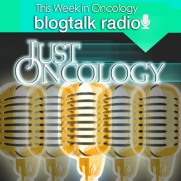
So we created the blog JustOncology and twitter handle @JustOncology (though he principally tweets via @chemosabe1) and shortly thereafter launched the radio show ‘this week in oncology’.
As noted in the masthead above Dr. Just writings would reflect on ‘health, illness & evidence based medicine’. An intentionally broad brush tapestry that included everything from his personal health encounter with heart surgery, the move into value based pricing for oncology services, oncology ACOs, seemingly interminable encounters with EHRs that actually work for the practice, practice mergers, partner relations and the most recent shift into ‘integrative oncology’ which has literally taken him offline for almost a year – at least as a principal contributor to this blog.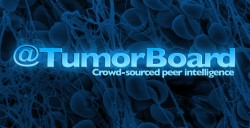
So as his partner, de-facto editor and co-contributor, let this post call attention to two projects that fit squarely into the ‘legacy’ theme and Dr. Just’s valuation of and advocacy for truly ‘patient centered care’.
Meet @TumorBoard aka TumorBoard (dot) com and CancerCenter (dot) TV – both projects in the incubator of ideas in search of funding support.
A little history on @TumorBoard includes the following introduction from our concept paper.
Context
A centerpiece of the American College of Surgeons’ Commission on Cancer (COC) standards to accredit hospital based cancer programs is a multidisciplinary conference (aka ‘tumor board’) of doctors and other cancer specialists, who meet on a regular basis to collaborate in the diagnosis and recommend treatment options for cancer patients. An active and vibrant tumor board is an essential consideration in the accreditation process. For further context see the Commission on Cancer’s ‘Cancer Program Standards 2012, Version 1.1: Ensuring Patient-Centered Care.’
As defined by the National Cancer Institute (NCI), a ‘tumor board’ is:
A treatment planning approach in which a number of doctors who are experts in different specialties (disciplines) review and discuss the medical condition and treatment options of a patient. In cancer treatment, a tumor board review may include that of a medical oncologist (who provides cancer treatment with drugs), a surgical oncologist (who provides cancer treatment with surgery), and a radiation oncologist (who provides cancer treatment with radiation). Also called multidisciplinary opinion.
Once a popular collegial if not ‘social’ venue to network and learn from one’s peers, periodically present or consult on cases, possibly earn CME credit, if not grab an occasional meal, tumor board has unfortunately lost some of its attraction and ‘gravitas’.
Increased practice complexity, misaligned financial incentives, declining reimbursement and growing demands on physician time, are some of the obstacles resulting in declining physician participation in traditional hospital based tumor boards. Yet few other comparable multidisciplinary, peer based clinical forums outside of mature integrated delivery systems or academic medical centers have the potential to enable the integrated practice of collaborative, coordinated and evidence based community cancer care.
Realizing the Promise of Multidisciplinary Cancer Care
Many assume multidisciplinary care is better care, since it engages multiple minds in the care process, yet in ‘The Need for Assessment and Reassessment of the Hospital Cancer Conference‘, in the Annals of Surgical Oncology, October 2009, Frederick L. Greene, MD, identifies the traditional weakness of many hospital based tumor boards:
most of these [tumor board] conferences…are based on a “show and tell” mentality rather than serving as treatment-planning conferences utilizing the expertise of the participating multidisciplinary experts….
In other words, traditional hospital based tumor boards have not yet fulfilled the promise of better care or improved outcomes as a result of the assumed value add of multidisciplinary engagement in cancer diagnosis and treatment. Apparently, business as usual ‘silo-ed’ medicine remains embedded in the care process even in the midst of what appears to be multidisciplinary consideration.
Why @TumorBoard?
@TumorBoard intends to uniquely address the convergence of several macro trends:
- The high cost of cancer treatment and parallel shift of a greater share of the total cost burden on to a resource constrained and often health literacy challenged patient.
- A heightened awareness of the need for increased clinical integration and care coordination across an otherwise silo-ed and discontinuous portfolio of specialties.
- Formal recognition that the upside of the multi-disciplinary engagement of cancer specialists (i.e., tumor board), has neither realized nor fulfilled its collaborative promise (see: Tumor Boards (Team Huddles) Aren’t Enough to Reach the Goal).
- Emergence of an informed and engaged ‘e-patient’ (witness the launch of SmartPatients).
- A nascent yet growing pool of technology savvy, patient-centric cancer specialists who value peer based collaborative multidisciplinary care with active engagement of the patients under their care (See e-patients and the Society for Participatory Medicine).
For more information, download the TumorBoard concept paper via tumorboard_description_v1.5.


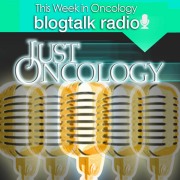
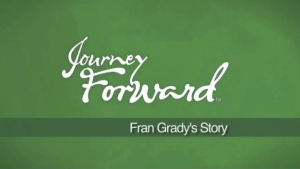
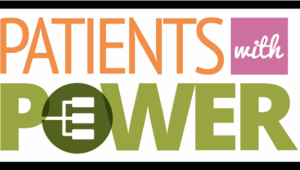
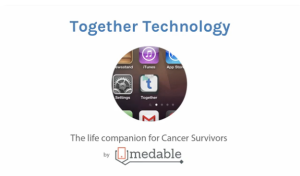 Both remaining Crowds Care for Cancer: Supporting Survivors Challenge finalists are scheduled as follows:
Both remaining Crowds Care for Cancer: Supporting Survivors Challenge finalists are scheduled as follows: